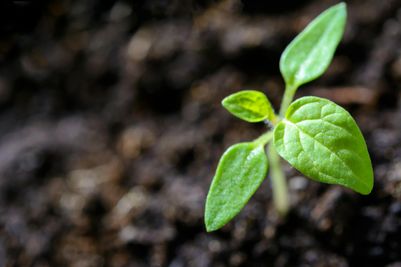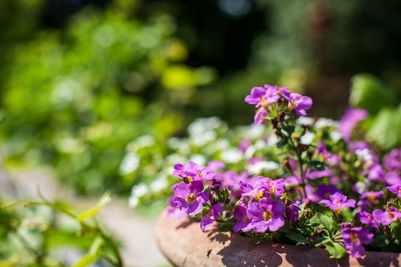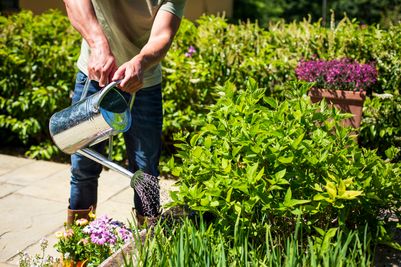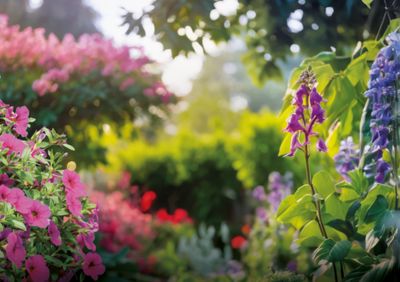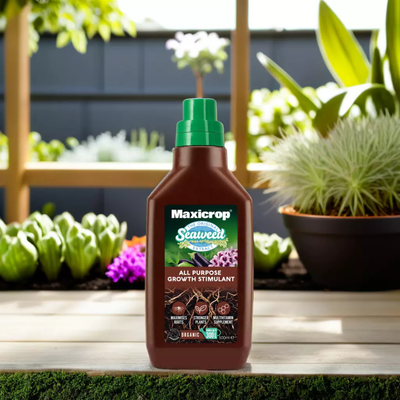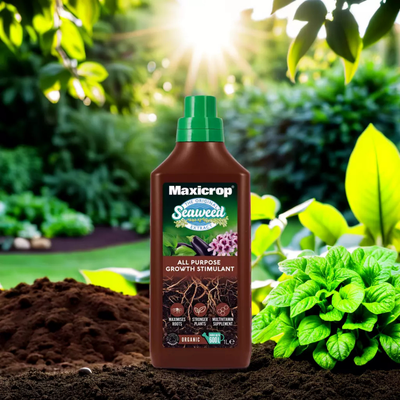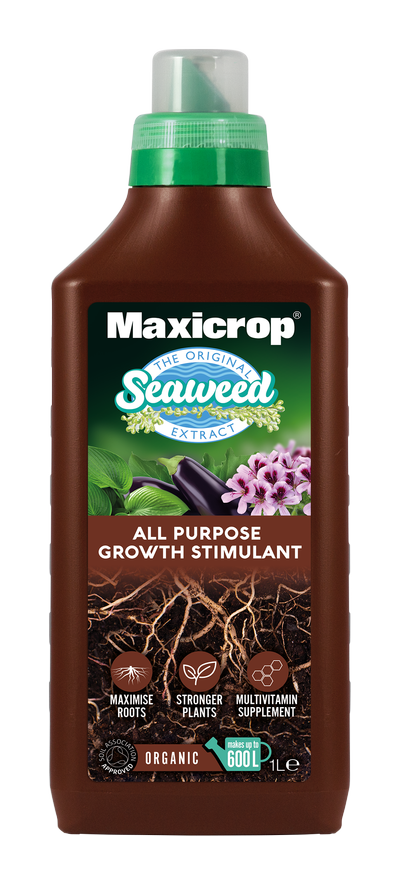10 Top Tips to Grow Resilient Plants Against Pests & Disease
Published:
Read Time: 4 mins
While pesticides might seem like a quick fix, the real secret to long-term success is helping your plants defend themselves. A healthy, resilient plant is far less likely to suffer from pest problems, meaning less stress for you, no chemicals pumped into the environment, and a happier, more vibrant garden.
So, how do you toughen up your plants and keep unwanted visitors at bay? From boosting soil health to companion planting, Angharad James product manager at Maxicrop, provides some top tips to help.
1. Maintain healthy soil
Over time, soil can lose its nutrients and organic matter, becoming less able to support healthy plant growth. When this happens, plants struggle to absorb what they need from the soil, leading to weaker roots and leaving them vulnerable to pests. One of the best ways to improve soil health is by adding organic matter such as compost, manure or leaf mould. Adding natural soil amendments can also work wonders. Seaweed-based products like Maxicrop’s All Purpose Growth Stimulant are an excellent way to restore and maintain soil health. Enriched with high-quality seaweed extract sourced from Norwegian waters, Maxicrop is a must-have for enhancing plant vitality from the ground up. This natural stimulant improves root development, making it easier for plants to absorb essential nutrients from the soil.
2. Companion planting
Mixing different plant types together can confuse pests, as it makes it more difficult for them to identify a single crop to target. Companion plants like marigolds, basil, and garlic contain natural compounds that act as natural repellents for pests while attracting beneficial insects. For example, planting marigolds near tomatoes helps repel aphids and other pests.
3. Encourage beneficial insects
Some insects, like ladybugs, lacewings, and predatory beetles, can help keep pest populations in check. These natural predators feed on other insects that are considered pests, thereby helping to maintain a balanced ecosystem and limit the population growth of those harmful species. By planting flowers that attract these beneficial insects, such as dill, fennel, and sunflowers, you can naturally manage pests without pesticides.
4. Proper watering and care
Over-watering or under-watering weakens plants, making them more prone to pests. As a general rule of thumb, check to see if the top two inches of soil are dry before watering to avoid overdoing it, and ensure suitable drainage is available. Water plants at their base to avoid wetting leaves, as this can lead to fungal issues. Regular care also strengthens plants and boosts their resistance to pest attacks.
5. Physical barriers
Use row covers or netting to physically block pests from reaching your plants, especially during vulnerable stages of growth. This is particularly effective against flying insects or larger animals like birds.
6. Pruning and removing damaged parts
Regularly inspect your plants for signs of pests or disease. Remove any affected leaves, stems, or fruits immediately to prevent the problem from spreading. Pruning also helps maintain good air circulation, reducing the chances of fungal infections.
7. Natural pest deterrents
Use natural sprays such Phostrogen’s Organic Fungus Plant Defence which is a natural pretreatment to strengthen plants. Natural sprays are less harmful to beneficial insects and the environment compared to chemical pesticides. Diatomaceous earth is another natural solution that can help with pests like ants, slugs, and beetles.
8. Crop rotation
Rotating crops each season can prevent the buildup of soil-borne pests and diseases that target specific plants. This also reduces pest life cycles by disrupting their habitat.
9. Maintain a clean garden
Clean up plant debris, fallen fruit, and dead plants, as they can harbour pests and diseases. Keep your garden tidy and free of things that might attract unwanted visitors.
10. Mulching
Mulch helps maintain moisture and soil temperature, and it also discourages pests like slugs and weeds. However, be mindful to use the right kind of mulch that won’t attract pests like ants.
These strategies, when combined, will build a healthy and resilient garden environment that naturally repels pests while encouraging beneficial organisms to thrive. Resilience is all about fostering a balanced ecosystem!
For more expert gardening advice and information about Maxicrop, visit www.seezon.co.uk
Ends
Editors notes
Maxicrop® has been a trusted name in gardening for over 80 years, known and loved for its premium organic seaweed-based products that support plant growth and resilience.
Sustainably sourced from the pristine waters off the Norwegian coast, Maxicrop’s seaweed extract is rich in nutrients and antioxidants, offering a natural bio-stimulant to develop strong plant cells and boost root growth, while building resistance to disease, drought and cold.
Its hero product, the popular All Purpose Growth Stimulant, is a pure bio-stimulant with an enriched formula designed to enhance root development, nutrient uptake, and stress tolerance in plants.
The wider range features products that carefully combine this high-quality, highly concentrated seaweed base with Nitrogen, Phosphorus, and Potassium to provide complete care for a variety of garden needs, including Vegetable Growth Stimulant and Feed, Tomato Growth Stimulant and Feed, Growth Stimulant and Sequestered Iron, and Moss Killer and Lawn Tonic.
Certified organic by the Soil Association, Maxicrop provides eco-conscious gardeners with effective, sustainable solutions for healthy, thriving plants.


